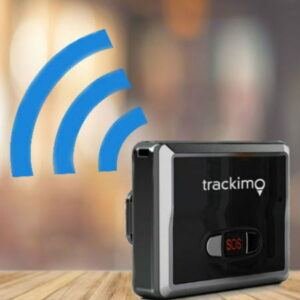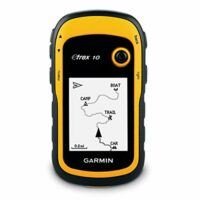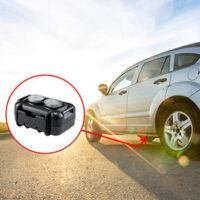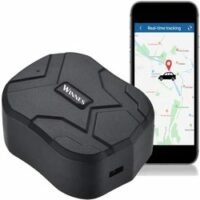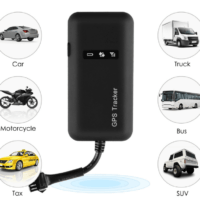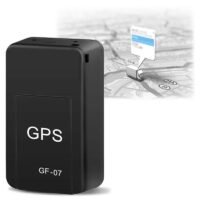GPS trackers help to facilitate the quick recovery of stolen cars, monitor assets, and schedule quick pick up (taxis). Nonetheless, most motorists have a hard time locating this helpful device in their private cars. Do cars have GPS trackers in them or do you have to install an aftermath option? And how do you find a GPS tracker installed by a third party? Keep reading to find out.
Newer cars are being equipped with GPS trackers from the manufacturer to facilitate safety and security. Some insurance premiums also require the installation of a GPS tracker. GPS trackers are more common in trackers, rent-cars, and some private vehicles. However, cars may have car trackers installed without the driver’s knowledge. That’s why it is also necessary for motorists to know the common installation spots for GPS trackers.
Motorists are opting for cars with factory-installed (OEM) car trackers. Although more expensive, GPS-equipped cars are easily recoverable in the case of theft. Use a GPS tracker to keep a proper and accurate record of your route and improve your commute.
Table of Contents
Commons Uses For GPS Tracker
● Taxis and Fleet Management
Taxi companies are embracing the benefits that come with GPS trackers for their business. GPS trackers improve productivity and employee behavior. Taxi companies use it to monitor the location of each driver.
This data is used to monitor assets on the road and schedule accurate response time for customers. Drivers get more productive and perform better. Some states and countries also demand that all fleet and taxi companies install GPS trackers in all their vehicles to facilitate security.
If you’re buying a used car from a taxi or fleet company, make sure you inspect for a GPS tracker.
● Monitored vehicles
Schools, hospitals, and public services have GPS installed in most of their vehicles to facilitate productivity and ensure security. Parents also use GPS trackers to monitor their underage children.
Advanced trackers have a wireless connection which allows owners to monitor vehicles in real-time. Parents can use this feature to keep in touch with their children’s route and map out their regular commune.
Although legal, it is common practice to alert your child to the presence of a GPS tracker on his/her vehicle. Privacy is an important fundamental right that shouldn’t be violated at will.
● Locate a parking spot
Finding your car after hurriedly parking in a strange parking lot can be challenging. However, with the help of a GPS tracker, motorists can quickly find their cars in the exact spot. GPS trackers with smartphone connectivity are best for finding your car as you can see the tracker and follow it on your smartphone, or website.
● Recovery Of Stolen Car
GPS trackers help to facilitate the quick recovery of stolen cars. You want to quickly find your stolen car before it is disassembled and sold in parts.
HOW TO LOCATE GPS TRACKER IN YOUR CAR
GPS trackers are useful devices to have installed in any vehicle, notwithstanding cost and design. However, it only benefits the motorist who knows it is installed. This article will reveal the common spots of GPS-tracker locations so motorists can also avoid being tracked.
The easiest way to uncover a GPS tracker in your car is by asking your car manufacturer. Your car manufacturer will tell you whether there is a GPS tracker installed and how to use it. However, if you suspect that you’re being tracked, you’ll have to take further steps.
Know What A GPS Tracker Looks Like
Depending on the style and purpose of installation, GPS trackers may take different designs and installation spots. Trackers that help record speed, location, and store data for the motorist as usually installed in the visible areas of the car.
You wouldn’t need a thorough physical inspection to uncover a factory-installed GPS. However, trackers installed to monitor your driving route without your consent are concealed in inconspicuous places.
Identification, however, is the most important aspect of uncovering a GPS tracker. Knowing where to look only yields results if you know what you’re looking for. GPS trackers are small, box-shaped devices, usually black. Most trackers have an antenna that instantly gives them away.
You can also go a step further by researching GPS trackers compatible with your car and use the designs as a guide for identifying any tracker that may be in your car.
How To Perform Physical Inspection
Performing a physical inspection on your vehicle is not easy as it sounds. You need to look in inconspicuous places and look for common tracker signs.
For example, GPS trackers installed on the exterior are usually fitted with magnets to hold them to the car chassis. With the ignition off, use your hands to inspect the wells of your car wheels. Check the sides and roof of the well carefully. If you feel anything, gently pull off the surface. Trackers are held on by magnets or screws.
So be careful while trying to pull off so as not to injure yourself. A magnetic GPS tracker will easily come off. While you’ll need a screwdriver to remove any GPS screwed to the wells.
However, if you’re being monitored by law enforcement or a revengeful ex, you may need to inspect other hidden areas of your car, like the hood, and underneath the car. Lift the hood to reveal and inspect the cold components of your engine. And search them thoroughly.
Use an inspection mirror if you own one to search underneath your car. You should also attach lights to mirror. The light is to help differentiate a car tracker from other devices underneath your vehicle. Check under the bumper.
While it is usually installed outside the car, you can also expand time searching inside the car. Check under the chairs and everywhere on the dashboard.
Checking The Interior Of Your Car
Inconspicuous trackers are usually installed on the exterior of the car to prevent detection. However, car manufacturers are finding car interiors to be a better and safer installation area. Interior installation provides better safety against theft and weather elements. Although most GPS trackers are water-resistant.
GPS trackers can be installed anywhere inside the car, from the dashboard to the truck, and underneath car seats. Inspect the top and bottom of your dashboard. Inspect the data port for any additional connections and trace it to the source. Open the truck and inspect the right corners for any alien device.
Want to go a little further? Then remove your door panel. Just look in places that have space.
How To Use An Electronic Sweeper
Electric sweepers detect frequency signals and alert the user with a series of notification options including audio and visual. You can use an electric sweeper to inspect both the car’s exterior and interior.
Buy high-quality electric sweepers capable of detecting different frequency bands. Also, charge the sweeper until it reaches full capacity before usage. When fully charged, use it to scan the body and interior of your car. You can attach it to a long rod to inspect the underneath of your car and engine.
Removal is quite simple. Simply detach the device. Some trackers are wired, so you’ll have to trace the wire to also remove it from any connected electrical circuit.
If someone has taken the time to install a GPS tracker on your car, then you may want to invest in better detection methods. While a thorough physical inspection is enough to uncover a factory-installed tracker, inconspicuously installed trackers would protect themselves under layers of security.
Hire professional security experts to use advanced technology to uncover GPS trackers.
Conclusively, GPS trackers are not common in private cars. Although motorists install aftermath options all the time. Always look out for smartphone connectivity and easy installation when buying a GPS tracker for your car.
